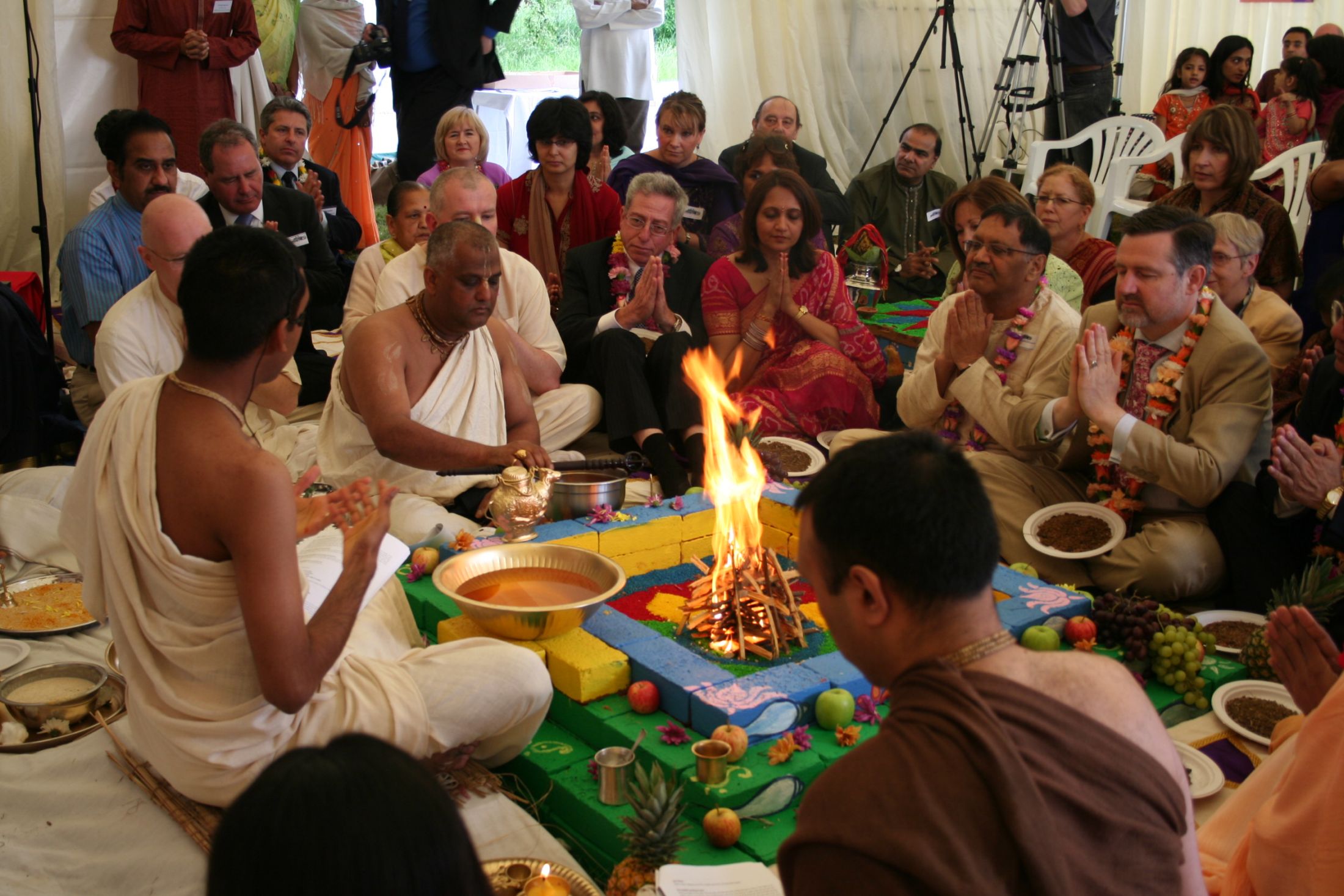Pooja (worship) of the gods consists of a range of ritual offerings and prayers typically performed either daily or on special days before an image of the deity, which may be in the form of a person or a symbol of the sacred presence.
In its more developed forms, pooja consists of a series of ritual stages beginning with personal purification and invocation of the god, followed by offerings of flowers, food, or other objects such as clothing, accompanied by fervent prayers.
Some dedicated worshipers perform these ceremonies daily at their home shrines; others travel to one or more temples to perform pooja, alone or with the aid of temple priests who receive offerings and present these offerings to the gods. The gifts given to the gods become sacred through contact with their images or with their shrines, and may be received and used by worshipers as the grace (prasada) of the divine.
Sacred ash or saffron powder, for example, is often distributed after pooja and smeared on the foreheads of devotees.
In the absence of any of these ritual objects, however, pooja may take the form of a simple prayer sent toward the image of the divine, and it is common to see people stop for a moment before roadside shrines to fold their hands and offer short invocations to the gods.



